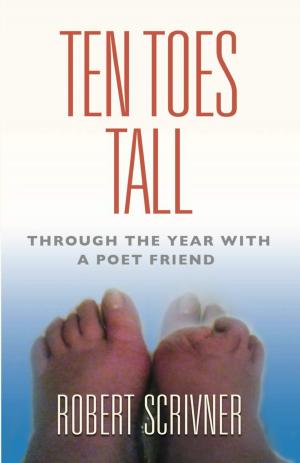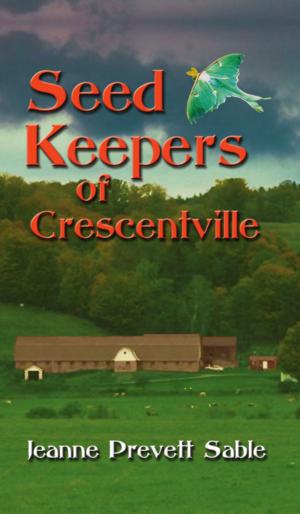The Contemporary Theism Handbook - Second Edition
Nonfiction, Religion & Spirituality, Philosophy, Mind & Body, Family & Relationships| Author: | John Gruneich | ISBN: | 9781634911894 |
| Publisher: | BookLocker.com, Inc. | Publication: | February 12, 2016 |
| Imprint: | Language: | English |
| Author: | John Gruneich |
| ISBN: | 9781634911894 |
| Publisher: | BookLocker.com, Inc. |
| Publication: | February 12, 2016 |
| Imprint: | |
| Language: | English |
This book presents a new religion. This new religion is called Contemporary Theism (CT). The worshipping groups of this new religion are called Co-Creator Communities (CCC). Even though this handbook will function as the guiding text for those who become disciples of Contemporary Theism, it is expressly understood to be provisional and will be revised periodically. If you are currently a Contemporary Theist, you are charged to use this text in your spiritual journey, while doing your part to improve this guiding text.
If you are not currently a Contemporary Theist, hopefully you will find the faith outlined here persuasive so that you will start calling yourself a ‘Contemporary Theist’ (CT) rather than a Christian, Muslim, Buddhist, Hindu, Humanist, Sikh, Jew, Animist, Agnostic, Positivist, Post-modernist or Atheist (or whatever you label your belief system). And just as importantly as professing this new faith, you will join a Co-Creator Community (CCC) to practice your new faith.
Like any religion (past, present or future), CT must provide answers to two very basic questions:
1) What is the nature of the world? (Cosmology)
2) How can I and should I live my life? (Purpose) For its cosmology CT uses the findings of science that show a 13.7-Billion-year old universe that is 90 billion lights year in diameter. While vast, the universe is essentially limited. Accordingly, any understandings the of the universe are also limited, which means no natural law, or concept of God can be timeless, infinite, or final. Everything changes over time, even change itself.
Human purpose includes using one’s own gifts optimally, while helping others. This process of self-actualization and love for others is called maturation. Maturation is the spiritual goal of CT as a religion. Maturation is most likely when all the dimensions of human nature are recognized. Maturation will lead to social action. Contemporary Theists are actively engaged in constructing sustainable economies, living ecologically sound life styles, acting as world citizens, reducing global inequality, fighting religious and racial intolerance, celebrating artistic creativity, building responsible families, and pursuing scientific progress. To become a CT, you have to learn to trust your own experience more than authority. The ‘authorities’ in charge today in the fields of economics, science, religion, politics habitually frame their truths in terms of certainty. For example, religion offers an infinite God; economics offers unlimited growth; science offers universal natural law; and nations claim inviolate national sovereignty. These ‘certainties’ are a major ingredient in every social problem we face as a species. This proffered certainty urges you to distrust your own experience. In place of certainty, CT advocates acceptance of limitation. A religion of the future can only be built when we admit our human limits and dissolve our certainties, while at the same time making most of the limited life we actually have.
The book concludes with details about how CT disciples will practice their faith using the four spiritual disciplines of research, daily prayer/meditation, weekly worship and monthly small group encounter.
This book presents a new religion. This new religion is called Contemporary Theism (CT). The worshipping groups of this new religion are called Co-Creator Communities (CCC). Even though this handbook will function as the guiding text for those who become disciples of Contemporary Theism, it is expressly understood to be provisional and will be revised periodically. If you are currently a Contemporary Theist, you are charged to use this text in your spiritual journey, while doing your part to improve this guiding text.
If you are not currently a Contemporary Theist, hopefully you will find the faith outlined here persuasive so that you will start calling yourself a ‘Contemporary Theist’ (CT) rather than a Christian, Muslim, Buddhist, Hindu, Humanist, Sikh, Jew, Animist, Agnostic, Positivist, Post-modernist or Atheist (or whatever you label your belief system). And just as importantly as professing this new faith, you will join a Co-Creator Community (CCC) to practice your new faith.
Like any religion (past, present or future), CT must provide answers to two very basic questions:
1) What is the nature of the world? (Cosmology)
2) How can I and should I live my life? (Purpose) For its cosmology CT uses the findings of science that show a 13.7-Billion-year old universe that is 90 billion lights year in diameter. While vast, the universe is essentially limited. Accordingly, any understandings the of the universe are also limited, which means no natural law, or concept of God can be timeless, infinite, or final. Everything changes over time, even change itself.
Human purpose includes using one’s own gifts optimally, while helping others. This process of self-actualization and love for others is called maturation. Maturation is the spiritual goal of CT as a religion. Maturation is most likely when all the dimensions of human nature are recognized. Maturation will lead to social action. Contemporary Theists are actively engaged in constructing sustainable economies, living ecologically sound life styles, acting as world citizens, reducing global inequality, fighting religious and racial intolerance, celebrating artistic creativity, building responsible families, and pursuing scientific progress. To become a CT, you have to learn to trust your own experience more than authority. The ‘authorities’ in charge today in the fields of economics, science, religion, politics habitually frame their truths in terms of certainty. For example, religion offers an infinite God; economics offers unlimited growth; science offers universal natural law; and nations claim inviolate national sovereignty. These ‘certainties’ are a major ingredient in every social problem we face as a species. This proffered certainty urges you to distrust your own experience. In place of certainty, CT advocates acceptance of limitation. A religion of the future can only be built when we admit our human limits and dissolve our certainties, while at the same time making most of the limited life we actually have.
The book concludes with details about how CT disciples will practice their faith using the four spiritual disciplines of research, daily prayer/meditation, weekly worship and monthly small group encounter.















